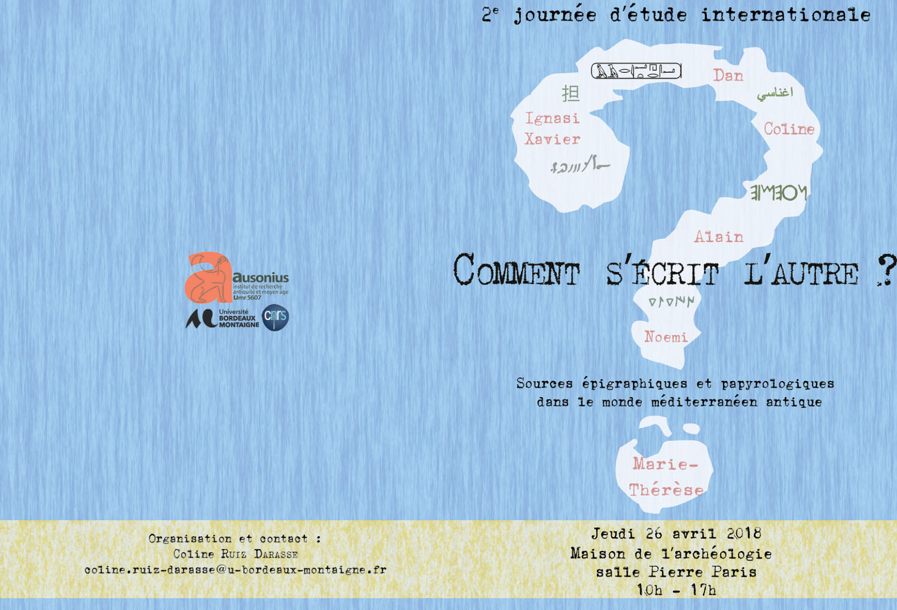By Noemí Moncunill
“Two people who do not speak the same language come across each other. One writes the name of the other. This fleeting scene seems timeless and banal to us; only the modest written trace that results from it keeps its memory alive. Yet it is thanks to it that we can, even centuries later, relive the exact moment of this linguistic contact.”
Coline Ruiz-Darasse (CNRS Ausonius – Université Bordeaux Montaigne), author of this remark, recently gathered a group of researchers from different countries in order to see how the study of personal names can contribute to our understanding of cross-cultural contact and linguistic change in Antiquity. This stimulating seminar took place in Bordeaux in April 2018 and LatinNow team members had the chance to participate. The title of this workshop was “Comment s’écrit l’autre. Sources épigraphiques et papyrologiques dans le monde méditerrannéen antique”.

The day started with a methodological presentation delivered by the organiser, Coline Ruiz-Darasse. There followed two papers on code switching in personal names, multiculturalism and Latinization in the western provinces, both presented by LatinNow contributors. Marie-Thérèse Raepsaet-Charlier (Université libre de Bruxelles), senior advisor of LatinNow, reflected on the multicultural picture of society arising from the study of personal names in northern Gallia. Noemí Moncunill (University of Nottingham and CSAD, Oxford), LatinNow researcher on the Iberian Peninsula, analysed the adaptation of Iberian names into Roman duo or tria nomina, in order to assess how this can be related to linguistic change in Hispania.
After a delicious, typically French lunch at the “Boeuf sur la Place” restaurant, the focus of the meeting moved to the East in the afternoon. Dan Dana (CNRS, Anhima) outlined examples to show how “assonance names” can be considered as “cultural mirrors” in Thrace; Alain Delatre (Université libre de Bruxelles) analysed linguistic variation and interference in the impressively wealthy documentation of Christian Egypt and, last but not least, Ignasi-Xavier Adiego (Universitat de Barcelona) teased out the linguistic and phonological perspectives of the adaptation of Lycian names into Greek and, conversely, of Greek names into Lycian.
The seminar was very rich in comments and insights on the part of participants and from the audience and it will lead to a monograph on the subject. We are already looking forward to reading it!